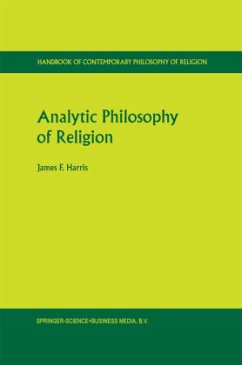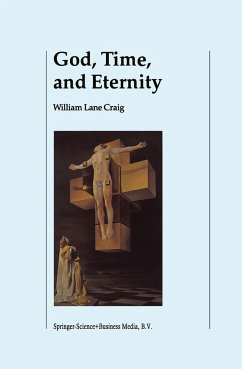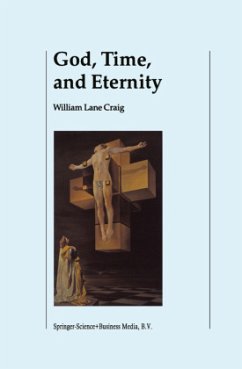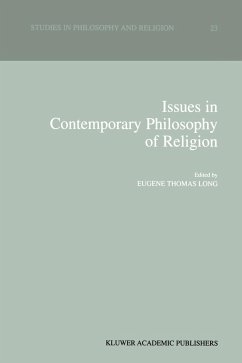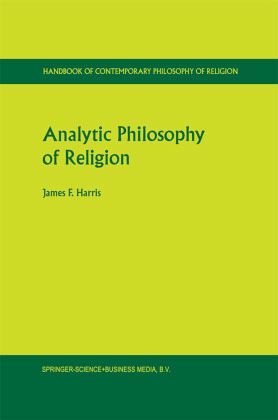
Analytic Philosophy of Religion
Versandkostenfrei!
Versandfertig in 6-10 Tagen
136,99 €
inkl. MwSt.
Weitere Ausgaben:

PAYBACK Punkte
68 °P sammeln!
When Gene Long, editor of Kluwer's Handbook of Contemporary Philosophy of Religion Series, first invited me to write the volume on Analytic Philosophy of Religion, I accepted with great enthusiasm. My only explanation for that enthusiasm now is that I was younger and more naive at the time. Soon after starting work on the volume, my enthusiasm was dampened by the daunting magnitude of the task. I began as a sprinter and quickly settled into the pace of a long-distance runner. Although I considered myself well read in the subject, I soon discovered that I had a great deal of research to do to b...
When Gene Long, editor of Kluwer's Handbook of Contemporary Philosophy of Religion Series, first invited me to write the volume on Analytic Philosophy of Religion, I accepted with great enthusiasm. My only explanation for that enthusiasm now is that I was younger and more naive at the time. Soon after starting work on the volume, my enthusiasm was dampened by the daunting magnitude of the task. I began as a sprinter and quickly settled into the pace of a long-distance runner. Although I considered myself well read in the subject, I soon discovered that I had a great deal of research to do to be confident that I had considered all of the major contributions to the various discussions, issues, and of religion. As I read more and more problems found within analytic philosophy books and articles, I realized that I had rushed into a territory already well trodden by the angels. I am greatly impressed by the sophistication and subtlety of philosophical argument that characterize the different debates in contemporary analytic philosophy of religion. This volume covers a vast amount of material. I have endeavored to provide the fairest possible reading of different authors, and, in cases where I include my own critical evaluations and develop my own positions, I have endeavored to provide the strongest possible interpretations of the positions I criticize.





